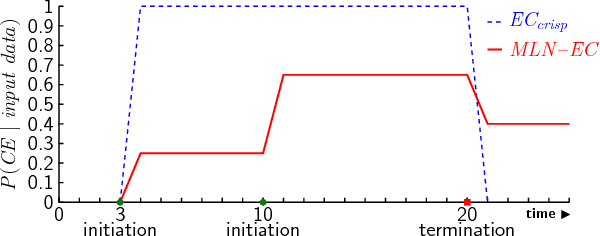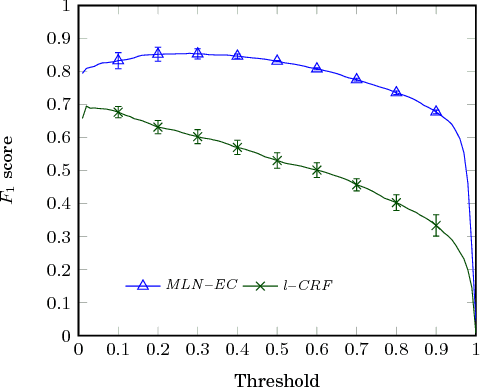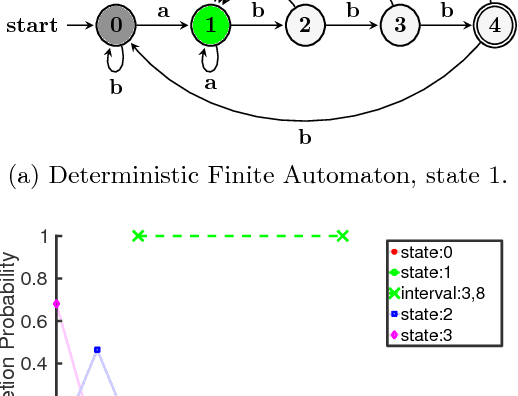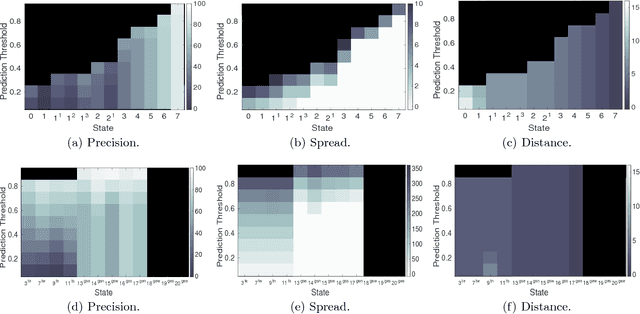Evangelos Michelioudakis
Early Time-Series Classification Algorithms: An Empirical Comparison
Mar 03, 2022



Abstract:Early Time-Series Classification (ETSC) is the task of predicting the class of incoming time-series by observing as few measurements as possible. Such methods can be employed to obtain classification forecasts in many time-critical applications. However, available techniques are not equally suitable for every problem, since differentiations in the data characteristics can impact algorithm performance in terms of earliness, accuracy, F1-score, and training time. We evaluate six existing ETSC algorithms on publicly available data, as well as on two newly introduced datasets originating from the life sciences and maritime domains. Our goal is to provide a framework for the evaluation and comparison of ETSC algorithms and to obtain intuition on how such approaches perform on real-life applications. The presented framework may also serve as a benchmark for new related techniques.
Semi-Supervised Online Structure Learning for Composite Event Recognition
Mar 01, 2018



Abstract:Online structure learning approaches, such as those stemming from Statistical Relational Learning, enable the discovery of complex relations in noisy data streams. However, these methods assume the existence of fully-labelled training data, which is unrealistic for most real-world applications. We present a novel approach for completing the supervision of a semi-supervised structure learning task. We incorporate graph cut minimisation, a technique that derives labels for unlabelled data, based on their distance to their labelled counterparts. In order to adapt graph cut minimisation to first order logic, we employ a suitable structural distance for measuring the distance between sets of logical atoms. The labelling process is achieved online (single-pass) by means of a caching mechanism and the Hoeffding bound, a statistical tool to approximate globally-optimal decisions from locally-optimal ones. We evaluate our approach on the task of composite event recognition by using a benchmark dataset for human activity recognition, as well as a real dataset for maritime monitoring. The evaluation suggests that our approach can effectively complete the missing labels and eventually, improve the accuracy of the underlying structure learning system.
The Complex Event Recognition Group
Feb 12, 2018



Abstract:The Complex Event Recognition (CER) group is a research team, affiliated with the National Centre of Scientific Research "Demokritos" in Greece. The CER group works towards advanced and efficient methods for the recognition of complex events in a multitude of large, heterogeneous and interdependent data streams. Its research covers multiple aspects of complex event recognition, from efficient detection of patterns on event streams to handling uncertainty and noise in streams, and machine learning techniques for inferring interesting patterns. Lately, it has expanded to methods for forecasting the occurrence of events. It was founded in 2009 and currently hosts 3 senior researchers, 5 PhD students and works regularly with under-graduate students.
An Integrated and Scalable Platform for Proactive Event-Driven Traffic Management
Mar 08, 2017



Abstract:Traffic on freeways can be managed by means of ramp meters from Road Traffic Control rooms. Human operators cannot efficiently manage a network of ramp meters. To support them, we present an intelligent platform for traffic management which includes a new ramp metering coordination scheme in the decision making module, an efficient dashboard for interacting with human operators, machine learning tools for learning event definitions and Complex Event Processing tools able to deal with uncertainties inherent to the traffic use case. Unlike the usual approach, the devised event-driven platform is able to predict a congestion up to 4 minutes before it really happens. Proactive decision making can then be established leading to significant improvement of traffic conditions.
 Add to Chrome
Add to Chrome Add to Firefox
Add to Firefox Add to Edge
Add to Edge